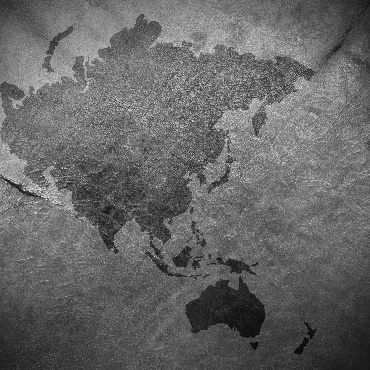WASHINGTON SOLIDIFIES PACIFIC PRESENCE
Last month, the United States concluded negotiations with Palau and the Federated States of Micronesia (FSM) to extend longstanding Compact of Free Association (COFA) agreements. Under the COFA arrangements, America has provided economic assistance and a range of government services to Pacific Island nations in the broader Micronesia region. In exchange, the U.S. has stationed military personnel and strategic assets in these countries. Washington has also exercised a "defense veto" over sensitive national security decisions that implicate American interests. In tandem, these benefits serve as a highway linking the Indo-Pacific Command in Hawaii and America's forward-deployed defense assets and bases in Japan, Korea, and the Philippines.
The renewal of the COFA agreements with Palau and the FSM comes as the People's Republic of China (PRC) has leveraged its economic heft and diplomatic overtures to contest America's military presence in the Pacific Island region. Moreover, Washington's work is not done, as negotiations continue with the Marshall Islands, another COFA partner. (Reuters, May 20, 2023; Axios, May 22, 2023)
CAMBODIA'S HUN SEN THROTTLES OPPOSITION PARTIES AGAIN
Cambodia is poised to hold National Assembly elections in July. Longtime strongman Hun Sen and his Cambodia People's Party (CPP) stand to dominate after the National Election Committee refused to register the country's largest opposition party. The Candlelight Party, the successor to the Cambodia National Rescue Party, is the only political body with sufficient size and organization to credibly challenge the CPP. The United States, according to the State Department, is "deeply troubled" by Hun Sen's "[c]ontrived legal actions, threats, harassment, and politically motivated criminal charges targeting opposition parties." Overshadowing Hun Sen's electoral control is his expected power transition to his eldest son Hun Manet, which could occur before the turn of the decade. (Associated Press, May 26, 2023; Voice of America, May 6, 2023)
MALAYSIA SNUBS WESTERN CONCERNS, WELCOMES HUAWEI
Despite the best efforts of American and European diplomats, the Malaysian government is allowing Chinese telecommunications giant Huawei to compete for a nation-wide 5G buildout project. The decision is part of Kuala Lumpur's push to expand the country's 5G network from 33% coverage last year to 80% by 2024. Complicating Malaysia's telecom transition is its lack of a cybersecurity framework to mitigate network-wide threats. Relatedly, U.S. Ambassador to Malaysia Brian McFeeters recently cautioned the government against partnering with "untrusted suppliers." Ultimately, however, these warnings did not convince national authorities. According to Malaysian Communications Minister Fahmi Fadzil, "the ones who need to be convinced are the telecommunication companies, the mobile network operators." (Reuters, May 2, 2023; Nikkei Asia, May 24, 2023; The Register, June 2, 2023)
CANBERRA BOLSTERS MANILA'S MARITIME AWARENESS
Defense ties appear to be deepening between Canberra and Manila. In mid-May, Australian Foreign Minister Penny Wong announced the provision of surveillance drones to the Philippines for "maritime domain awareness and protection capabilities." The unspoken geopolitical context was China's enforcement of its sovereignty claims in the South China Sea with militarized fake islands and invasive patrols. Beyond equipment and training, Wong left the door open to joining the United States and the Philippines in regional patrols to enforce freedom of navigation and overflight. These moves come in the wake of the Australian Defense Force's plans to upgrade its firepower — specifically, the range of its projectiles from 25 to 186 miles, and its long-range precision strike capability to 311 miles. (Associated Press, May 18, 2023; Radio Free Asia, May 2, 2023)
CHINA BOOSTS MILITARY COOPERATION WITH LAOS
In the wake of large-scale military exercises between Washington and Manila earlier this year, China announced plans for joint drills with its southern landlocked neighbor Laos. The exercises, dubbed "Friendship Shield 2023," ran for several weeks, involved over 900 military personnel, and simulated attacks from transnational criminal groups. Friendship Shield 2023 marked a step above the medical humanitarian exercises Beijing and Vientiane conducted last year. Beyond Laos, China has also run joint drills at sea this year with Singapore and Cambodia. (Reuters, May 5, 2023)
Want these sent to your inbox?
Subscribe
